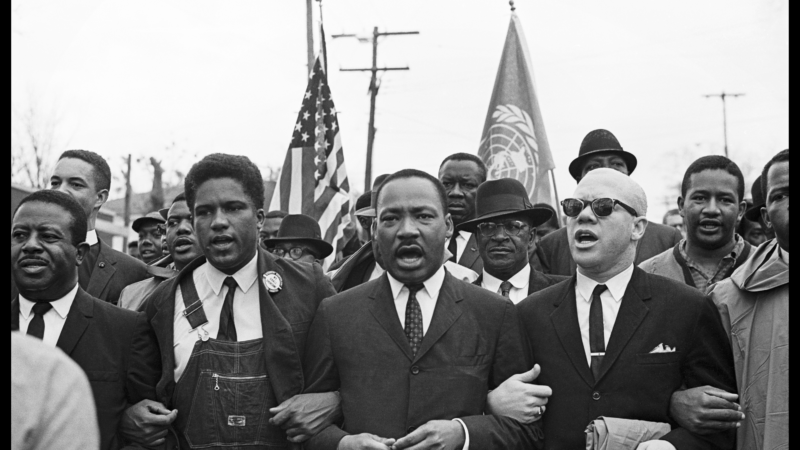Newly restored photos show the ruin of ‘Bloody Sunday’ in Selma on its 60th anniversary
A woman laid out in the street, unconscious. Troopers lined up, armed with batons. A telegram from Massachusetts reacting to the violence.
As a twentysomething freelance journalist at the Birmingham News, James “Spider” Martin was tasked with capturing these moments with his camera, after state troopers shot and killed civil rights activist Jimmie Lee Jackson in Marion, Ala.
His death led to protests that went on for weeks, and culminated on March 7, 1965. That day became known as “Bloody Sunday,” when activists attempted to peacefully march across the Edmund Pettus Bridge in Selma, while on their way to Montgomery, the state’s capital. They were confronted by law enforcement, who attacked 600 of the protesters using billy clubs and tear gas.
Martin snapped thousands of pictures in the days after Jackson’s death, several of which gained national prominence and helped raise Americans’ awareness of the calamities of the 1960s civil rights movement.
Much of his archive from those monumental Selma protests have been newly restored and is now on display at The Montgomery Museum of Fine Arts, in time for the 60th anniversary of Bloody Sunday. The images are also being commemorated in a book, Selma Is Now.
“Bloody Sunday changed my father, both as a man and human being, and it opened his eyes to the depth of the struggle for equal rights for African Americans in a profoundly urgent way,” his daughter, Tracy Martin, says in the book. “It was during that terrifying day at that bridge that he dedicated himself to covering the march for the duration, however long it took.”




(Spider Martin | Briscoe Center for American History)






(Spider Martin | Briscoe Center for American History)

New York Giants hire John Harbaugh as coach after identifying him as their top choice
Harbaugh joins the Giants 11 days after he was fired by the Baltimore Ravens. The Super Bowl champion is now tasked with turning around a beleaguered franchise.
US launches new retaliatory strike in Syria, killing leader tied to deadly Islamic State ambush
A third round of retaliatory strikes by the U.S. in Syria has resulted in the death of an Al-Qaeda-affiliated leader, said U.S. Central Command.
NASA rolls out Artemis II craft ahead of crewed lunar orbit
Mission Artemis plans to send Americans to the moon for the first time since the Nixon administration.
Trump says 8 EU countries to be charged 10% tariff for opposing US control of Greenland
In a post on social media, Trump said a 10% tariff will take effect on Feb. 1, and will climb to 25% on June 1 if a deal is not in place for the United States to purchase Greenland.
‘Not for sale’: massive protest in Copenhagen against Trump’s desire to acquire Greenland
Thousands of people rallied in Copenhagen to push back on President Trump's rhetoric that the U.S. should acquire Greenland.
Uganda’s longtime leader declared winner in disputed vote
Museveni claims victory in Uganda's contested election as opposition leader Bobi Wine goes into hiding amid chaos, violence and accusations of fraud.






